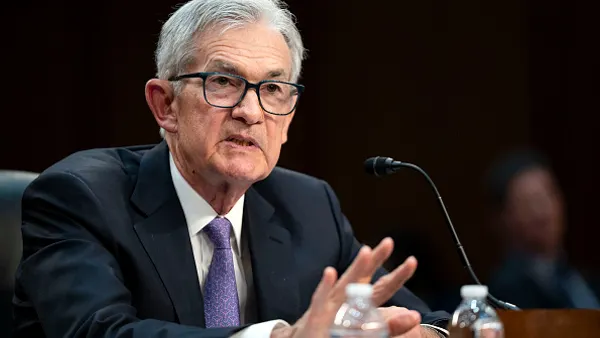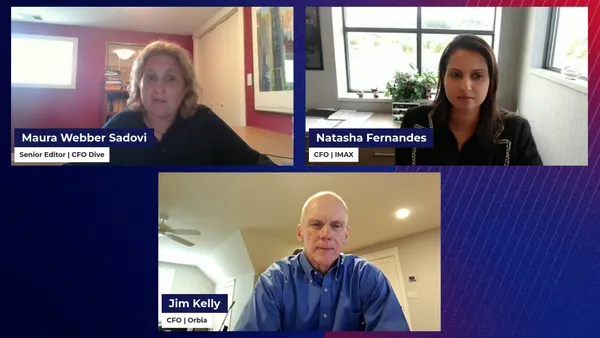The pandemic has led CFOs to take on a new role: smasher of rose-colored glasses, according to Oracle NetSuite's research arm, Brainyard. Finance executives provide the realism to counteract sometimes fanciful optimism, and, for that reason, often have the CEO's ear.
"What finance says now matters a lot, particularly in determining measured responses that prioritize short-term viability without sacrificing long-term resilience and agility," Art Wittmann, editor of a recent Brainyard post, wrote.
Because of today's turbulence, the old playbook that governed the relationship between the CEO and CFO has changed, Wittmann said. In less turbulent times, CEOs focused on creating great products while CFOs dealt with creating great companies. "Good CFOs, like good referees, keep everything running smoothly while staying mostly in the background," Wittmann said. That's now changing.
Starting from scratch
The pandemic's sudden impact on the business cycle is driving the shift, Jason Maynard, senior vice president of global field operations at Oracle NetSuite, told CFO Dive Wednesday.
"We've had a fairly uninterrupted economic growth since 2010," said Maynard. "From a macroeconomic viewpoint, there hasn’t been that traditional business cycle you would have seen years ago that would cause you to question your projections."
This sustained, fairly low-volatility climate, Maynard said, has become not just high-volatility, but to a place where "large chunks of economy are just being shut down." As a result, every organization has had to sit down and rethink their plan, including the finance team.
"All of a sudden, all your planning models, your entire mechanism for forecasting, just got reset," he said. "Now you're worried, in some cases, about revenue falling off a cliff, and what kind of forecast is reasonable."
But rules corresponding to "normal" times are no longer apt, which has the CFO and CEO “encroaching on one another’s fiefdoms,” altering the relationship, Wittmann wrote.
"If sales leaders are coming to the table with outdated projections, someone must tell them that’s not good enough," he wrote, suggesting they have to talk to customers about future plans and be willing to listen.
The CEO-CFO bond
CFOs trust data and analysis over instinct, which leads them to question assumptions about trends lacking solid data. In April, most CFOs slammed the brakes, hard, on their expenses, Maynard said. But in the last 90 days, "businesses are getting a better idea of the shape of their own recovery, whether it’s a v- or w- or u-shaped recovery. There's a little more visibility now."
It's easy for leaders from sales, operations or marketing to fall in love with a solution for its features without considering the big picture, Wittmann said. The CFO's job is to always keep the big picture in mind.
To that end, Oracle NetSuite's Brainyard Summer 2020 Finance Priorities Survey found CFOs' big picture spending priorities have shifted from "cut everything" to "invest carefully." The pandemic has pushed once-frugal finance leaders to advocate for greater investments in technology, hiring and retention, even with smaller budgets.
"Whether it's the CFO's constant exposure to cash flow realities and accounts receivable challenges or a forward-looking, agile reassessment of the business, we can't say," Wittmann said. "But something has moved the finance team to be a catalyst for change."

Finance leaders are also becoming more malleable thinkers, Wittmann added, particularly when it comes to technology adoption and IT team partnership; just 14% of finance executives want to reduce technology spending, as opposed to 28% of non-finance execs.
"It's surprisingly how quickly organizations' mindsets have changed," Maynard said.
Expected actions in the finance department as a result of COVID-19 aren't uniform. Fifty-seven percent of finance execs ranked new hiring as a priority, but only 35% of line-of-business executives did the same.
That’s a 63% swing between the two audiences, Wittmann said, which may indicate CFOs need to talk more with colleagues about their needs. But most respondents agree the finance function is now both more important, and more challenging, than pre-pandemic.
Further, 70% of non-finance executives listed finding savings as a priority, as did 72% of finance executives. A close second for finance executives, at 70%, is producing better reporting on KPIs. But it was only the sixth most common response from their peers, with just 32% saying reporting is a top priority.
Maynard recommends CFOs continuously reexamine their own financial models and KPIs.
"Really go in, and review your underlying assumptions about how each part of your business operates, because so much has changed," he said. "Don't rest on your laurels or think anything is a constant. Whether it's conversion rates at the top of the funnel, or sales, not testing these assumptions could set you up for a surprise."













